Married to the Mob
Michelle Pfeiffer leads loaded cast in tediously incoherent comedy
Video Days is Mad About Michelle in the month of April, with ten films starring leading lady Michelle Pfeiffer, born April 29, 1958 in Santa Ana, California and celebrating her 67th birthday this month.
MARRIED TO THE MOB (1988) has a director of such progressive taste and a cast as talented as they were hungry for the opportunity to letter in comedy that there’s no explanation why this film is as bad as it is. The director is Jonathan Demme, coming off a screwball noir (Something Wild, 1987) and an equally inspired Spalding Gray performance film (Swimming to Cambodia, 1987). The cast is an embarrassment of riches. But to call the script they’re working from a blueprint would be an insult to draftsmen who make blueprints. The film is unwatchable.
Barry Strugatz & Mark R. Burns attended NYU Film School as undergrads. After graduation, they teamed to write a screenplay. Nothing came of it. Strugatz found work in New York as a P.A. on movies like Hair (1979), while Burns worked as a film editor. Several years after their first collaboration, they wrote another script and this one landed them a talent agent named Annette Van Duren, the friend of a friend. She scheduled Strugatz & Burns pitch meetings at a few studios in Los Angeles, none of which commissioned them to write anything. The screenwriters decided to write something they liked and let the chips fall where they may. The result was Married to the Mob, a comedy about a widow starting a new life independent of her husband’s employers. Strugatz & Burns finished the script in ten weeks and their agent got it to Bill Todman Jr. and Joel Simon. Todman Jr. was son of the Bill Todman of Goodson-Todman Productions, of game shows like The Price Is Right and Family Feud. Todman Jr. had segued from the family business to Lormiar, where he teamed up with Simon. The producers delivered Married to the Mob to Jonathan Sheinberg, head of production at Orion Pictures.
Orion had an arrangement with Jonathan Demme, sending him material and within a certain budget, leaving him completely alone to make his films, as they had with Something Wild. Demme saw qualities in Married to the Mob that reminded him of Preston Sturges, one of his favorite directors, who intertwined comedy with a social theme, as in Sullivan’s Travels (1941). Desiring to make a pure entertainment, Demme agreed to direct, bringing in his producers Edward Saxon and Kenneth Utt. The stacked cast featured Michelle Pfeiffer, Matthew Modine, Mercedes Ruehl, Dean Stockwell, Alec Baldwin, Nancy Travis, Oliver Platt, Joan Cusack, O-Lan Jones, Ellen Foley, Trey Wilson, Chris Isaak, Joe Spinell, David Johansen, Colin Quinn, Charles Napier and Tracey Walter. Opening August 1988 on 824 screens, reviews were as eclectic as the film. Gene Siskel and Roger Ebert split, with Siskel recommending the picture with a warning that after a strong start it bottomed out, while Ebert faulted Demme for throwing in too many things not related to Pfeiffer’s character. Married to the Mob couldn’t eclipse A Fish Called Wanda, then in its sixth week of release, nor several hits held over from the summer, but in spite of modest distribution, held a spot among the top ten grossing films for five weeks.
Other than the sketch she appeared in for director John Landis in Amazon Women on the Moon (1987), Michelle Pfeiffer hadn’t been cast in roles that required her to do much more than bewitch men with her celestial beauty. Married to the Mob offered her a chance to employ her goofball sense of humor, a wonderful place for a comedy to begin. Pfeiffer is a great deal of fun to watch, with her Long Island accent and (for roughly half the film) hair. Alec Baldwin, chomping at the bit for more screen time after roles in She’s Having a Baby (1988) and Beetlejuice (1988), is terrific in his domestic scenes with her. Baldwin exits the picture too quickly, leaving Pfeiffer without someone in her weight class to spar with. The problem with the film is one of material and how carelessly it seems to have been sketched out. Married to the Mob is like a fake movie that some fictional character is working on, like the one Anna Scott (Julia Roberts) is in London promoting in Notting Hill (1999), something so phony it can stand out against the “reality” of our film.
Excusing that the movie doesn’t take crime seriously or feature anyone in the main cast who’s even Italian, Married to the Mob is deathly thin and unfunny. For it to work as a screwball comedy, Pfeiffer’s character needed to be wise to everyone, perpetrating a masquerade to outwit the FBI and mob, who seek to exploit her. Instead, she’s the one exploited, and isn’t any smarter than hack writers would assume a beautician from Long Island would be. Demme keeps his leading lady off-screen for a tedious amount of time, giving scenes to T-men and gangsters written below the level of sophistication of Cracked magazine. The screenwriters may have been too proud to embrace mindlessness and were evidently too unskilled to write smarter. Demme finds his spot with a salon where Pfeiffer’s character takes a job. In addition to a KCRW-friendly soundtrack featuring early recordings by Sinéad O'Connor, Ziggy Marley and Chris Issak, with a musical score by David Byrne, the West Indian salon is cut from a Jonathan Demme picture, depicting America as more diverse than most films at the time. This is where a comedy starring Michelle Pfeiffer should’ve been set, without dopey FBI agents and mobsters this cast is better than. Running 104 minutes, so many scenes were cut that Demme includes outtakes over the end credits, including a gem in which Pfeiffer falls over a railing and trusts Modine to catch her.
Video rental category: Comedy
Special interest: Surveillance Society


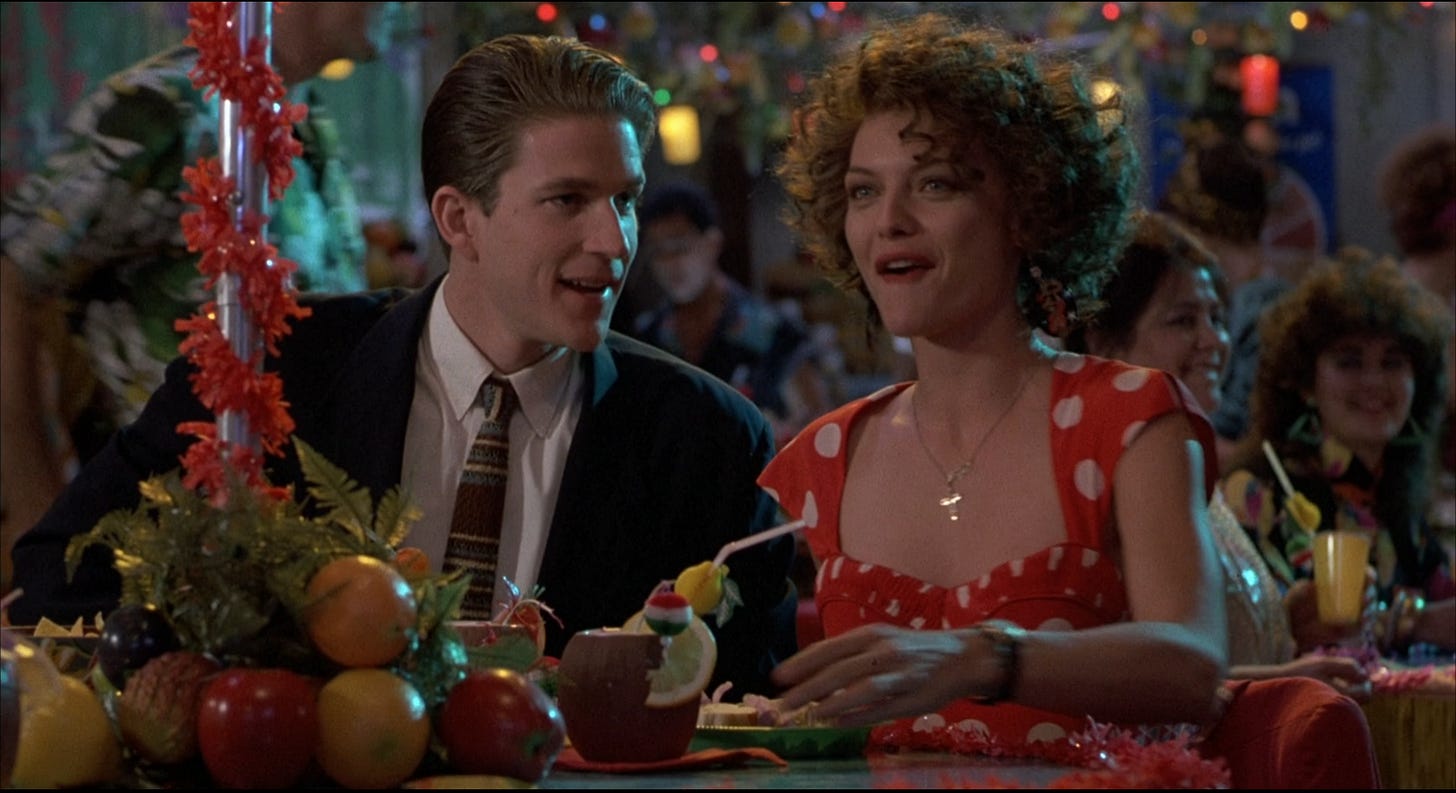
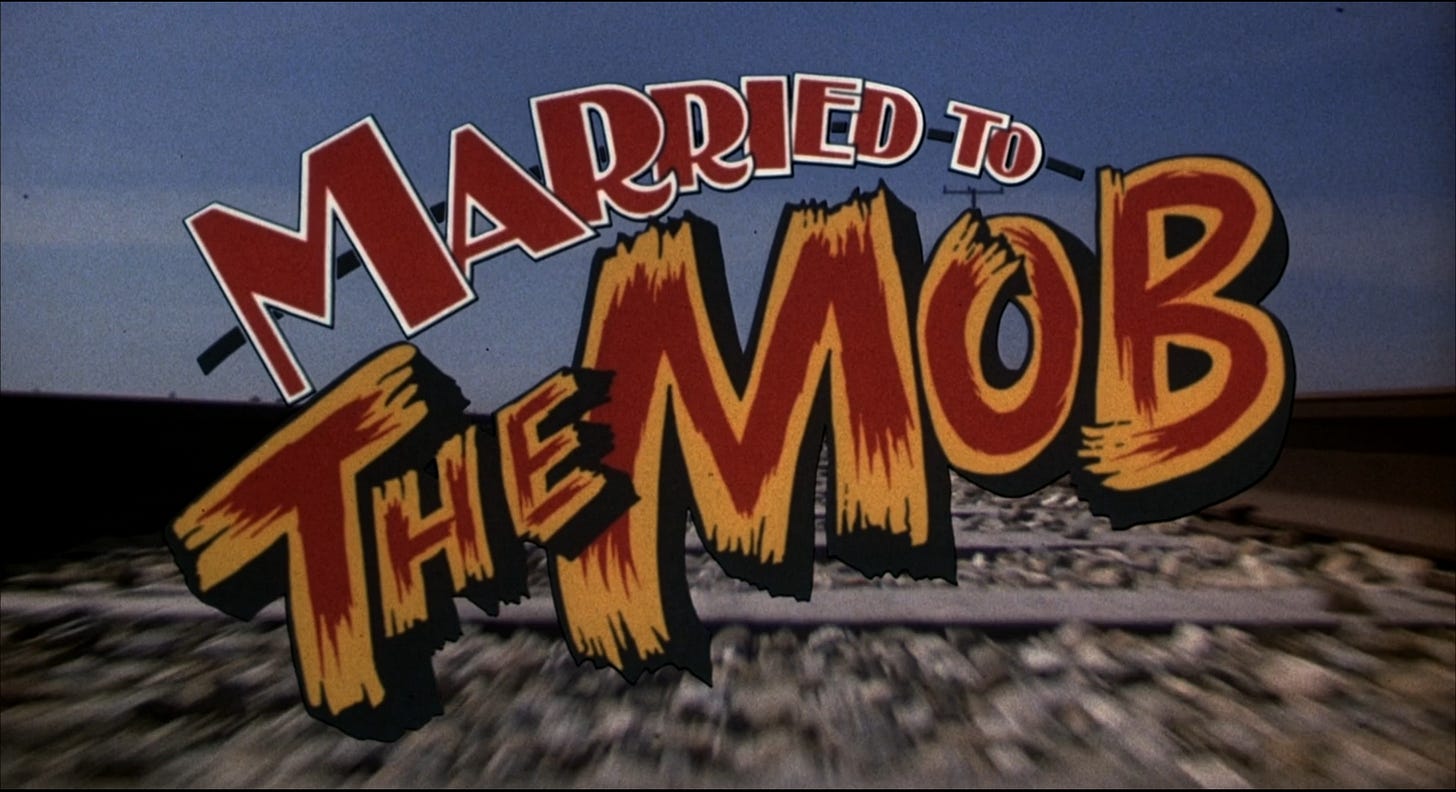
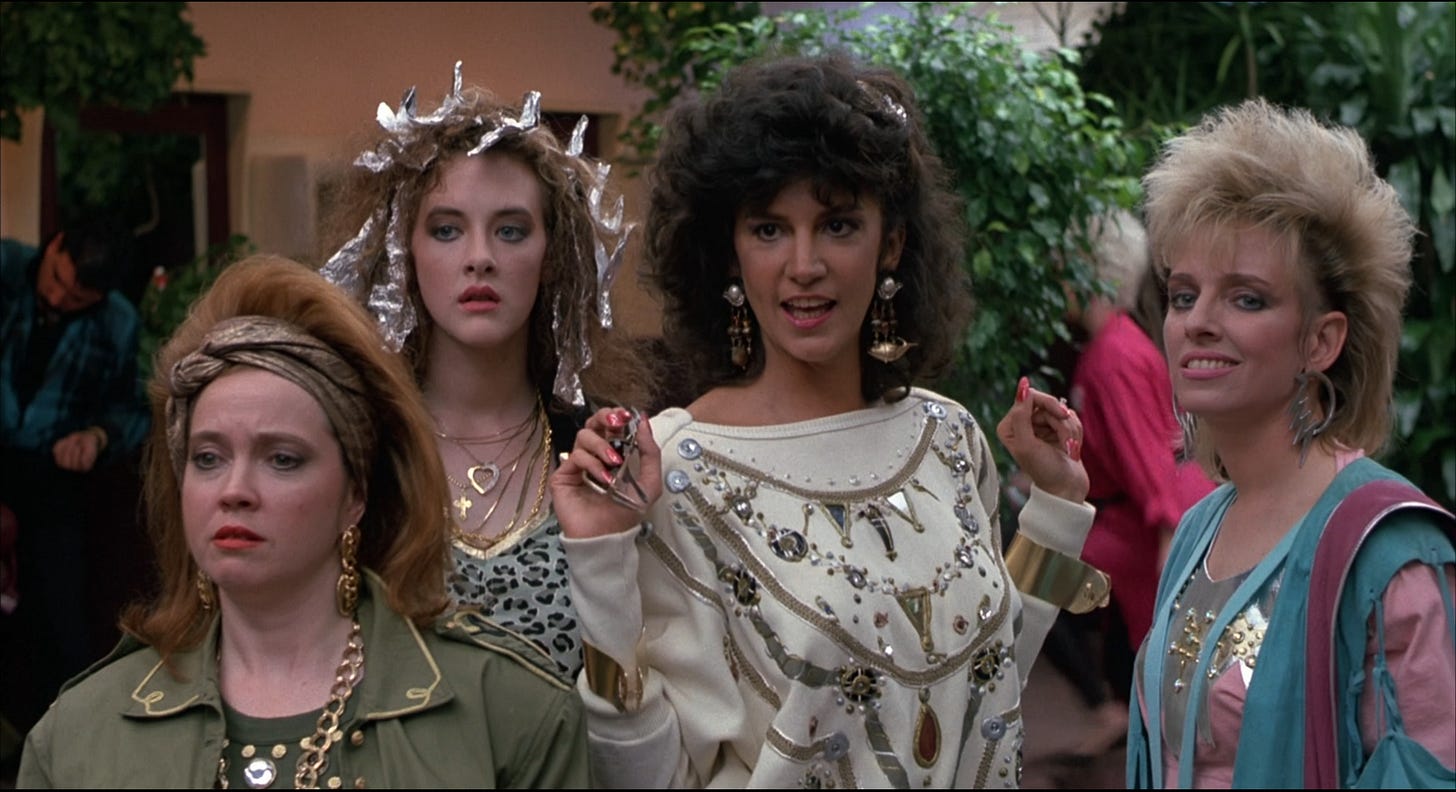
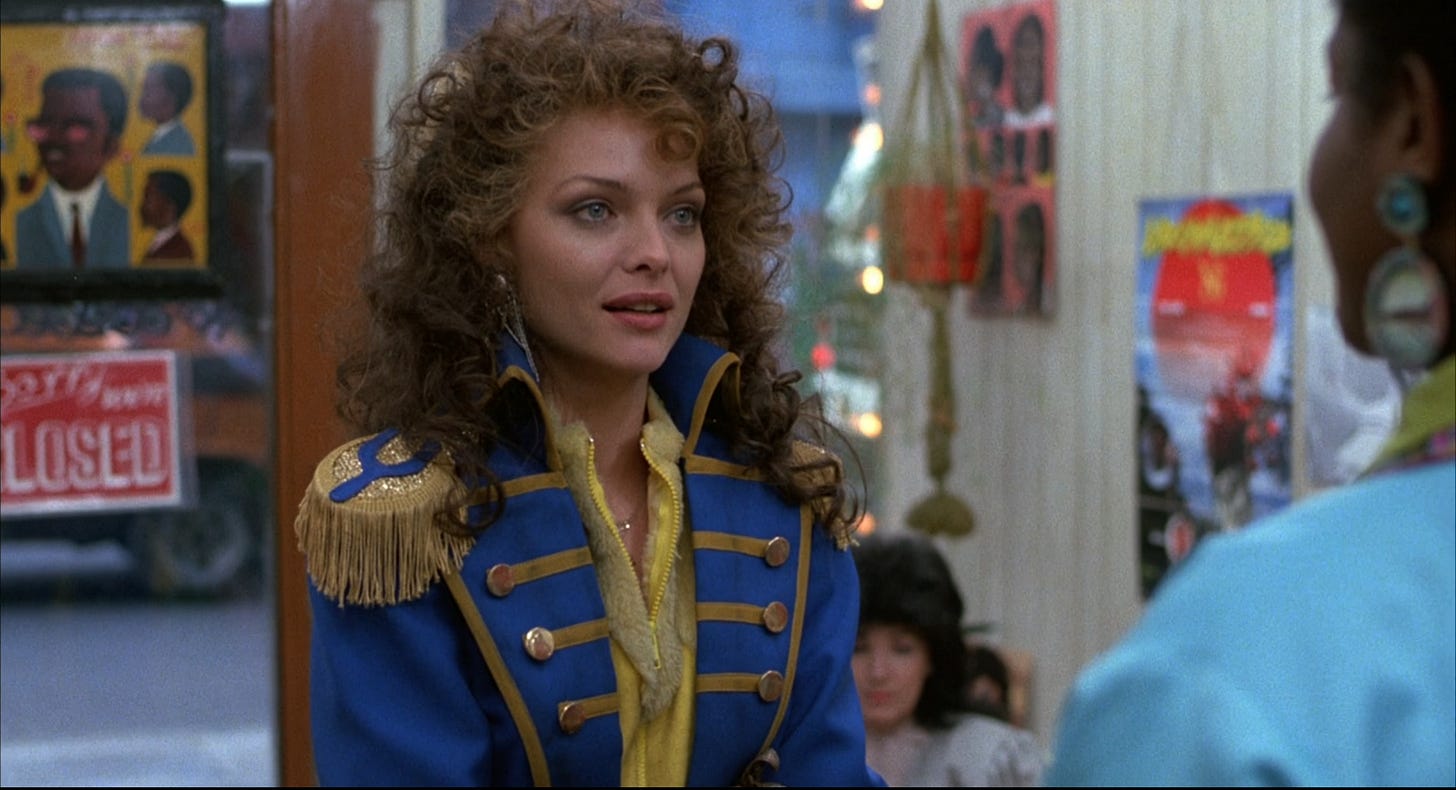
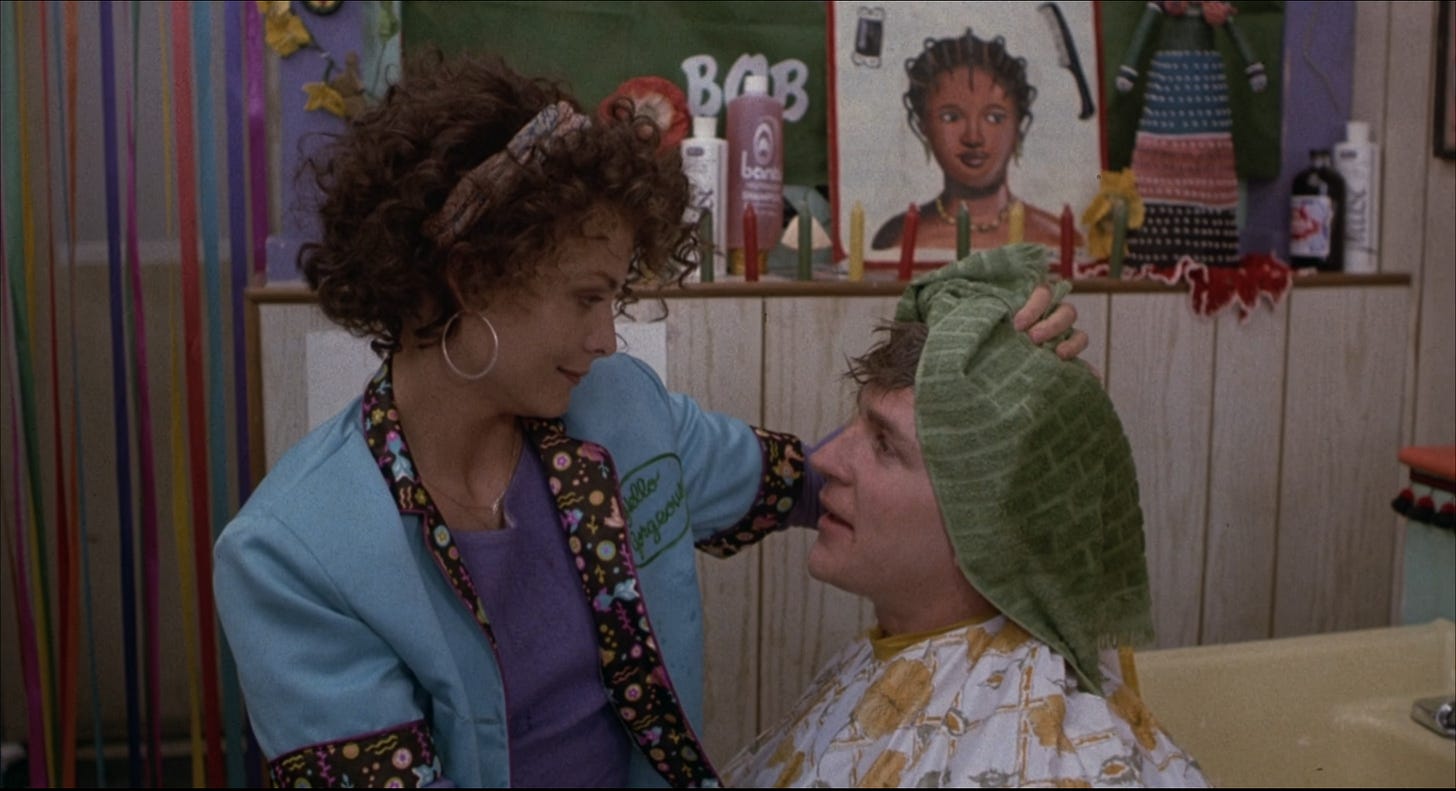
I saw this film and left it not feeling like I liked it, but also not feeling like I didn’t like it… And you just illuminated why I was ambivalent… Once again, Joe, thanks for the totally entertaining analysis. Peace! CPZ.